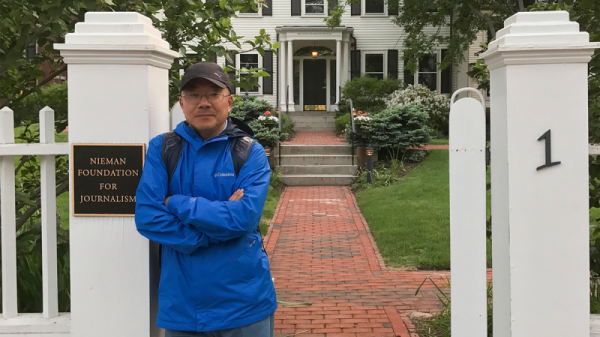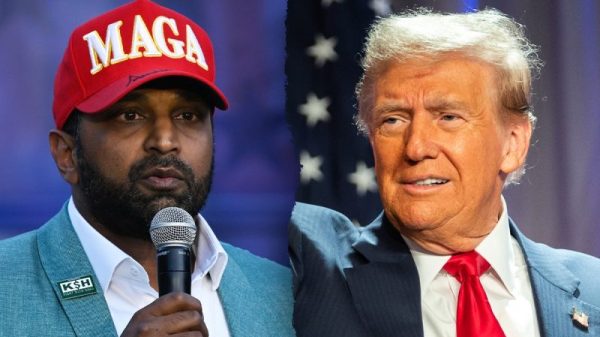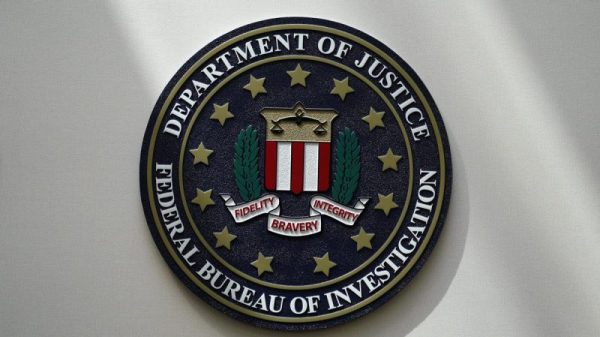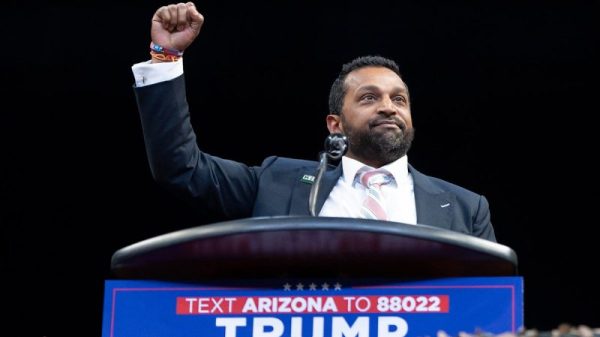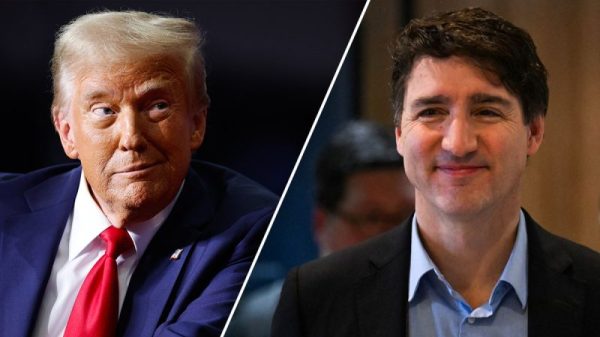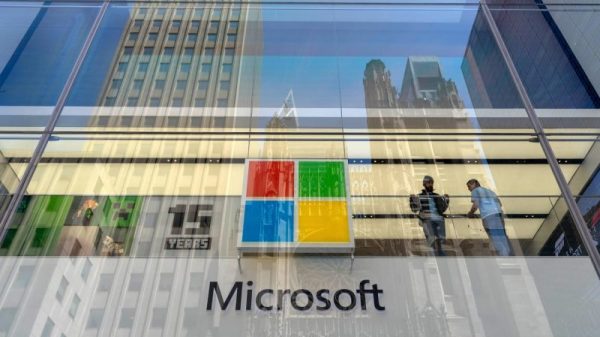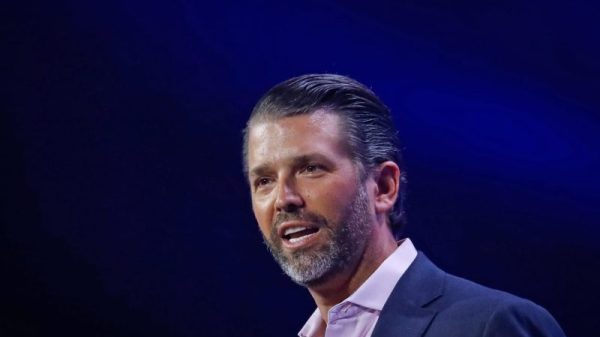“You have places like Wisconsin with over 500 illegal drop box locations … you have places like Georgia where liberal groups were paying people $10 per vote. … Look at what happened in Arizona, 200,000 ballots, that the signatures didn’t match.”
— Sen. Marco Rubio (R-Fla.), in remarks on NBC’s “Meet the Press,” May 19
In the contest to join former president Donald Trump on the 2024 ticket as his running mate, aspirants have had to follow his path on questioning election integrity in the United States. Many refuse to say they would accept the election results if Trump doesn’t win. Some in contention have echoed Trump’s falsehoods, as Vivek Ramaswamy did when he declared in one of the GOP primary debates that “the 2020 election was indeed stolen by Big Tech.” (The theory, without evidence, is that more coverage of the Hunter Biden laptop would have changed the election results.)
In a recent television appearance, Rubio managed to achieve a trifecta.
He refused to say he would accept the results: “If it’s an unfair election, I think it’s going to be contested.”
He suggested that more coverage of the laptop would have affected the results: “What undermines elections is when NBC News and every major news outlet in America in 2020 censored the Biden laptop story, which turned out to be true, not Russian misinformation, unprecedented.”
And he made three specific claims about 2020 — one misleading, two debunked. Let’s examine them in the order he made them. A Rubio spokesperson declined to address his statements in detail. She forwarded the office’s news release on his appearance, which cast his comments as addressing the “legacy media’s one-sided questioning on election denying.”
Rubio is referring to a July 2022 ruling by the Wisconsin Supreme Court that 528 drop boxes that were in place in 2020, during the pandemic, and 570 in a 2021 election were “illegal under Wisconsin statutes.” In the 4-3 ruling, the court concluded that state law did not explicitly permit drop boxes, even though they had been used in some jurisdictions for years. “An absentee ballot must be returned by mail or the voter must personally deliver it to the municipal clerk at the clerk’s office or a designated alternate site,” the court said.
Officials “may have been trying to make voting as easy as possible during the pandemic, but whatever their motivations, WEC [Wisconsin Elections Commission] must follow Wisconsin statutes,” the court said. “Good intentions never override the law.”
Brian Hagedorn, one of the judges in the majority, emphasized in a concurring opinion: “This case is not about the risk of fraudulent votes being cast or inspiring confidence in elections.”
In other words, Rubio is relying on an after-the-fact court ruling, one narrowly focused on whether state statutes allowed the use of drop boxes, even in a once-in-a-century health emergency. The ruling was close. In fact, the balance of power on the court has since changed, and the now liberal-leaning court is considering whether it should overturn the ruling.
This is a discredited falsehood, peddled by an organization, True the Vote, notorious for spreading election misinformation. True the Vote first made this claim in 2021, but after the state of Georgia launched an investigation and demanded evidence, it tried to withdraw the allegation.
The investigation “uncovered zero evidence of the allegations made by True the Vote but did expose True the Vote as a mendacious and deceptive enterprise that … is untrustworthy and unable to provide a shred of evidence for a single one of their fairy-tale allegations,” said Mike Hassinger, a spokesman for the Georgia secretary of state, a Republican, in an email. “Like all the lies about Georgia’s 2020 election, True the Vote’s fabricated claims of ballot harvesting have been repeatedly debunked, and anyone who repeats them is either a willful dunce or a co-conspirator.”
True the Vote did not respond to a request for comment. In brief, the organization in November 2021 filed a complaint claiming that an unnamed source labeled “John Doe” said he had been one of many people who had been paid to collect and deliver absentee ballots — for a fee of about $10 per ballot — during the 2020 election. The complaint said this “ballot trafficking scheme” had been organized by “a network of nongovernment organizations” and that the source had been paid directly from one of these groups.
But the story fell apart when Georgia authorities tried to investigate. Truth the Vote first tried to refuse a subpoena, claiming confidentiality agreements, and then tried to withdraw the complaint. When Georgia refused to allow that, True the Vote admitted in a court filing it had no confidentiality agreement or “identity and contact information” regarding its alleged source.
As was the case with the Georgia example, Rubio is fanning a conspiracy theory that has little basis in fact.
Joe Biden won Arizona by only 10,457 votes, or 0.3 percent of the nearly 3.4 million ballots cast. Afterward, Republicans claimed that Maricopa County, the state’s biggest, allowed tens of thousands with signature mismatches to be counted. Biden won the county by 45,109 votes, so his margin there was critical to his narrow victory.
Mark Brnovich, the Republican attorney general at the time, in 2022 issued a report saying the signature verification system in the county was “insufficient to guard against abuse.” When a Democrat, Kris Mayes, became attorney general last year, she released internal documents from the Brnovich probe that showed his investigators did not find evidence of fraud or improper procedures. At one point, Brnovich even left out edits from his own investigators refuting his assertions. His staff advised him that the county had rigorous training and processes, as well as additional staff, to ensure signature verification.
As we noted, Rubio’s spokesperson did not explain where he obtained the 200,000 figure. Our colleagues at FactCheck.org believe it came from a February 2022 “pilot study” funded by the Republican-controlled Arizona Senate. That study extrapolated from a sample of 499 early ballot envelopes; more than 1.9 million early ballots were cast. The study claimed “200,000 mail ballots with mismatched signatures were counted without being reviewed (‘cured’) in Maricopa.”
That’s not the same as 200,000 signatures being fraudulent. Indeed, the study estimated that only 5,277 ballots should have been disallowed. But again, all of these numbers are an extrapolation from a tiny sample — and we now know Brnovich’s investigators found no evidence of problems.
Trump is setting a high bar for vice-presidential contenders. They appear to need to echo his debunked claims of election fraud in 2020. Rubio’s statements, especially regarding Georgia and Arizona — one from a notorious election conspiracy group; the other extrapolated from a small sample — likely pass the Trump test. But they fail the Pinocchio test. Rubio earns four.
(About our rating scale)
Send us facts to check by filling out this form
Sign up for The Fact Checker weekly newsletter
The Fact Checker is a verified signatory to the International Fact-Checking Network code of principles

